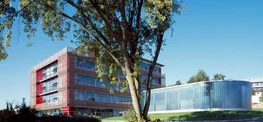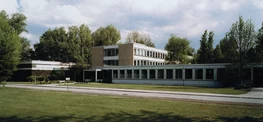The Breska Lab (Dynamic Cognition Group) at the Max Planck Institute for Biological Cybernetics invites applications for fully funded PhD (65% TVöD-13) and Postdoc (100% TVöD-13) positions to study human dynamic cognition, with a flexible starting date in December 2021 or later.
The positions
To understand mechanisms of adaptive behavior in dynamic environments, our group investigates temporal cognition and its interaction with different cognitive functions. Research topics include temporal prediction and attention, interval and rhythm timing, temporal learning and memory, oscillatory and non-oscillatory neural mechanisms, cerebellar and striatal contributions to cognition. Lab members will have the opportunity to develop their research agenda within these fields, to train in different methodologies, including psychophysics, human M/EEG, non-invasive brain stimulation and computational modelling, and to uniquely apply these methods in various neurological populations.
Your profile
Candidates should hold a degree (MA/ MSc/ PhD) in psychology, cognitive science, cognitive neuroscience, or a related discipline, and must be proficient in English. We seek candidates that are interested in psychological processes and their neural basis, and specifically in the lab’s research domains, and strive to develop as rigorous and theoretically-motivated scientists. German language skills, experience in M/EEG methods, experience in neuropsychological research, and scientific programming skills (matlab, python or R) are advantageous but not prerequisites.
We offer
Postdoc positions are for two years with the possibility of extension. PhD positions are for three years with the possibility of extension. PhD students can enroll with the doctoral program of the Graduate Training Centre / International Max Planck Research School (GTC-IMPRS), the Graduate School of Neural & Behavioural Sciences or Graduate School of Neural Information Processing.
Successful candidates will join a vibrant neuroscientific research community Tübingen, where they will have the opportunity to participate in local and international collaborations. The Max Planck Society strives for gender and diversity equality, welcomes applications from all backgrounds, and strongly encourages individuals from underrepresented groups to apply. We foster an engaging and mutually enriching work environment, that is supportive of members’ professional and personal development.
Application
To apply, please send a PDF file containing a brief letter outlining your research interests and why you are interested in these topics, your CV, and the names of two reference persons to:
Dr. Assaf Breska
assaf.breska@tuebingen.mpg.de
More information on the Dynamic Cognition Group.
Applications will be considered until the positions are filled.











